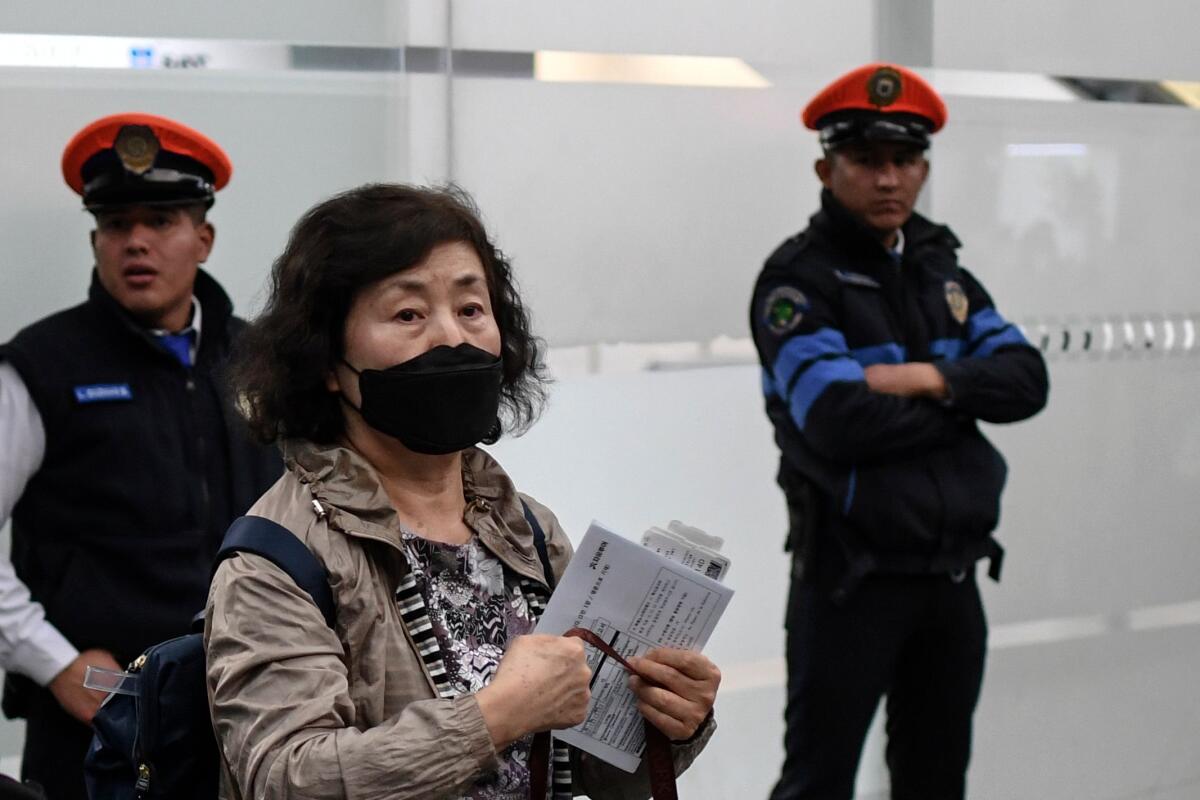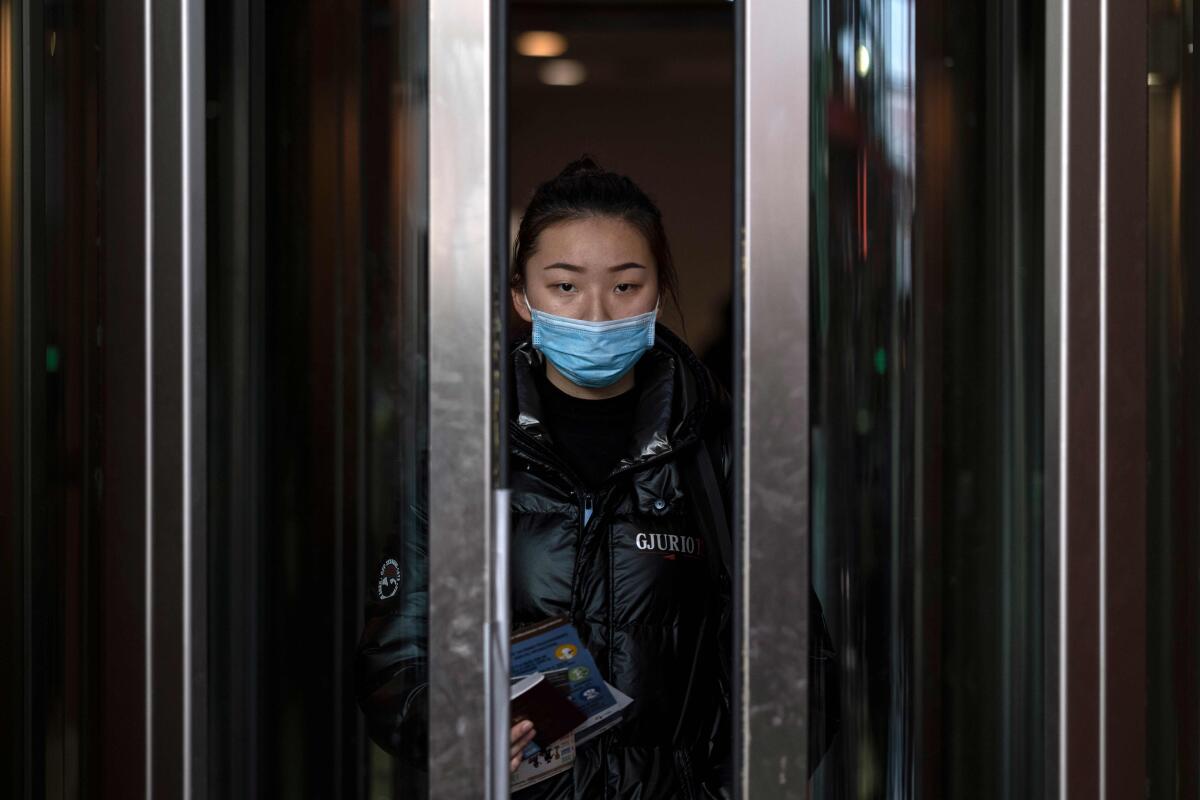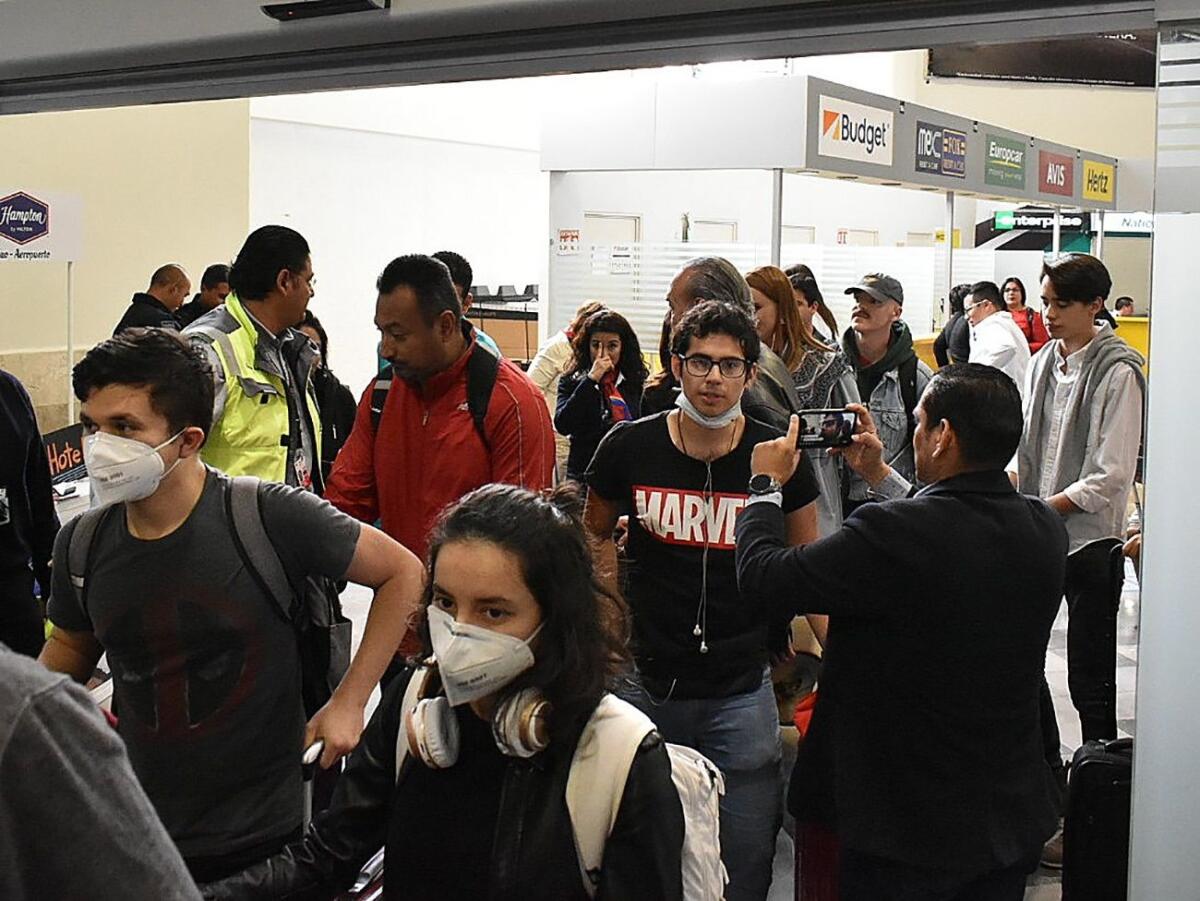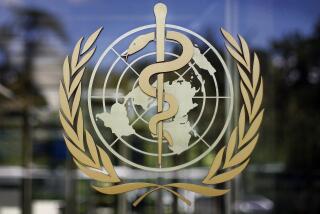In Mexico, officials promise no repeat of swine flu delays of 2009

- Share via
MEXICO CITY — In 2009, when swine flu broke out in Mexico, critics accused the government of responding too slowly and allowing the virus to spread farther and faster than it otherwise would have.
Now, as a new strain of coronavirus spreads from China across the globe, Mexican authorities have vowed that they won’t be caught unprepared.
Even though Mexico has yet to confirm a single case, officials have been testing people who may have been exposed and are setting up a toll-free number for queries.

“At least until today … there has been no coronavirus — that’s a good thing,” President Andrés Manuel López Obrador told reporters this week. “And we are ready. We are not going to do what was done once before.”
The federal health ministry said the country is in a “phase of permanent monitoring” and is prepared for any prospective treatment or isolation of patients.
Back in 2009, long before López Obrador had his current job, he joined a chorus of opposition figures assailing the government of then-President Felipe Calderón for its initial response to the swine flu crisis. Critics said Mexico was slow to alert international health organizations about the threat.
Calderón eventually ordered dramatic steps to curb the spread of the virus, including shutting down schools, restaurants and other public venues, which temporarily transformed downtown Mexico City into a virtual ghost town and subjected the president to criticism that he had gone too far.

The 2009 virus spread rapidly to the United States and across the globe, eventually taking more than 150,000 lives, according to the U.S. Centers for Disease Control and Prevention.
In recent days, Mexican news has been rife with reports of coronavirus infections in people who returned from China recently or were in contact with a traveler who had been there. The arrivals of dozens of Mexican students who had been studying in China have drawn considerable press coverage.
But Mexico’s federal health ministry said this week that although 10 “suspicious” cases were investigated, none of the individuals examined had the virus or were seriously ill — even as the threat has been hyped on social media.
In one instance, parents in the town of Tetelpa, in Morelos state, demanded that a school principal go into quarantine because they had seen photographs online of the principal greeting her son upon his return from China, where he was studying Mandarin. State health officials determined the principal represented no health risk but said she would nonetheless perform her duties off-campus for a few days.
Even in China, no Mexican citizens have tested positive for the virus. On Sunday, 10 Mexican nationals in the city of Wuhan — where the virus is thought to have originated — were flown to France, the Mexican foreign ministry said. None of the 10 reported being ill, but all were to remain in cautionary quarantine for 14 days.
Still, authorities say, it is almost inevitable that the coronavirus will reach Mexico, given how easily the virus is apparently transmitted and the considerable amount of travel between Mexico and China.
Airlines have canceled or suspended the few direct air links between the two countries. But many travelers who have been to China take international connections to get here. Mexico has not announced additional health screening for people who have recently been to China.
In January alone, more than 13,000 people traveled from China to Mexico, Dr. José Luis Alomía Zegarra, the federal health ministry’s designated spokesman on the coronavirus issue, told reporters late last month.
“That’s why we say it is imminent, because of the type of transmission and because of the globalization in which we live,” he said. “Sooner or later we can expect an initial confirmed case … as has begun to happen in other countries in the world.”
Special correspondent Cecilia Sánchez in Mexico City contributed to this report.
More to Read
Sign up for Essential California
The most important California stories and recommendations in your inbox every morning.
You may occasionally receive promotional content from the Los Angeles Times.









